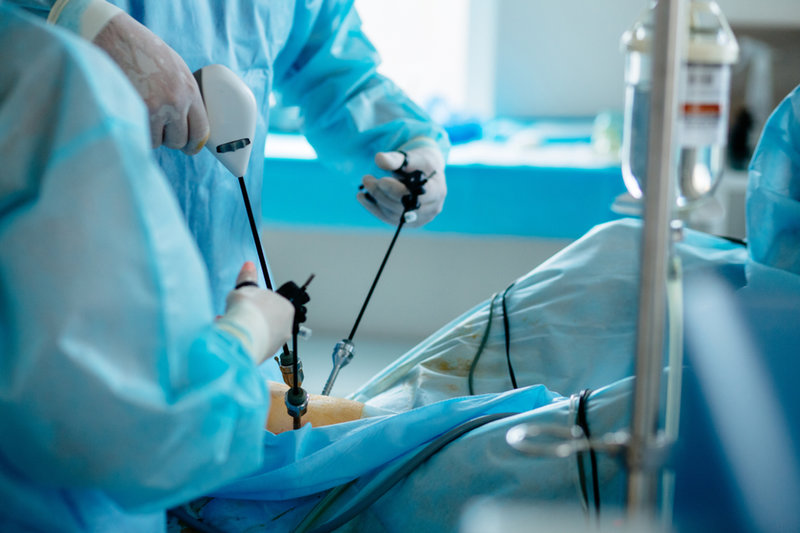
Covid-19 had a negative impact on general surgery device markets in 2020
The Covid-19 pandemic had a significant impact on the sale of medical devices in 2020. Many general surgery device markets were negatively impacted due to elective procedures being cancelled or postponed to minimise the spread of the virus and to reallocate resources to Covid-19 patients.
Below is a summary of how Covid-19 affected general surgery device markets in each quarter of 2020.
Q1 2020
Most general surgery device markets experienced growth until the Covid-19 pandemic was declared in mid-March 2020. Elective procedures were postponed during this time due to measures aiming to prevent further spread of the SARS-CoV-2 virus.
Additionally, patients avoided hospitals due to fear of contracting infections. This resulted in an overall market decrease of 10%–15% during Q1 2020. The markets for aesthetic injectables, implants and bariatric surgery devices were especially vulnerable because these procedures are elective.
Q2 2020
Markets were highly affected during this quarter. Many clinics closed to protect patients and clinic staff, and procedures performed in hospitals were severely impacted since many resources were reallocated to the Covid-19 response. Many operating rooms were converted into Covid-19 intensive care units (ICUs).
Surgeons and support staff were reassigned to Covid-19 patients who were in critical condition. Ventilators were moved from operating rooms to the new Covid-19 ICUs.
By this point, guidelines on the elective procedures had been published in many countries including the US, and contained recommendations about triaging Covid-19 patients and when to eventually reopen clinics. For example, recommendations released by the American College of Surgeons suggested prioritising breast cancer patients with life-threatening conditions.
Similarly, triage guidelines were released for colorectal cancer patients. In April 2020, the market for many general surgery devices declined by 70%-80%. While most companies, including Johnson & Johnson and Intuitive Surgical, reported losses during this quarter, some companies reported increases in revenue due to increased demand for certain devices. For example, Ambu saw increased demand for its single-use endoscopes and bronchoscopes as a result of the Covid-19 pandemic.
Recovery from the impact of Covid-19 began in May 2020 and ramped up in June 2020, especially in the US, as hospitals could no longer afford to lose revenue and the shock of the Covid-19 pandemic had subsided. The American College of Surgeons updated its guidelines for medical staff who were eager to resume elective procedures.
In the US, where private hospitals heavily rely on elective surgeries for revenue, many hospital administrations had laid off staff and frontline workers to remain in business. By the end of June 2020, hospitals started to fully restore in-person health services based on safety measures from the Centers for Disease Control and Prevention, the World Health Organization, and the American Hospital Association.
Private hospitals in the UK began to treat insured and self-paying patients for certain elective surgeries after receiving approval from the National Health Service England, and many provinces in Canada resumed elective surgeries in June. By the end of Q2 2020, sales for most general surgery device markets were down 40% for the quarter compared to the previous year.
Q3 2020
An article published in the British Journal of Surgery found that 70% of elective surgeries were cancelled during the 12 weeks of peak Covid-19 disruption. The article authors analysed data from 190 countries and found that the overall cancellations rates for elective procedures were similar across all geographic regions.
Hospitals and medical device companies manufacturing general surgery devices continued to experience increased demand during Q3 2020. By July 2020, markets had recovered to between 70%–85% of pre-Covid-19 levels. As a result, companies such as Intuitive Surgical began to generate increased revenue.
The volume of procedures using Intuitive Surgical’s da Vinci robotic system began to recover, and system placements also increased compared to Q2 2020. By the end of Q3 2020, the company’s year over year revenue was only down 4.4%, and da Vinci procedure volumes had mostly recovered to pre-Covid-19 levels in the US.
However, in August and most of September, the recovery of general surgery device markets plateaued due to a resurgence of Covid-19 cases. As a result, some inpatient surgeries were postponed while outpatient procedures were largely unaffected. By the end of September, positive recovery had resumed.
Q4 2020
Markets continued to recover throughout October and November. GlobalData expects the markets for general surgery devices to return close to pre-Covid-19 levels by the end of December.
This is due to an anticipated surge in medical devices sales as the number of procedures surpasses pre-Covid-19 levels to make up for surgeries that were postponed during Q2 2020.
In 2021 GlobalData does not expect hospital-based procedures to be as severely impacted as in 2020, since hospitals are much more prepared to cope with the burden the pandemic.
For more insight and data, visit GlobalData's Medical Intelligence Centre
COMMENT from